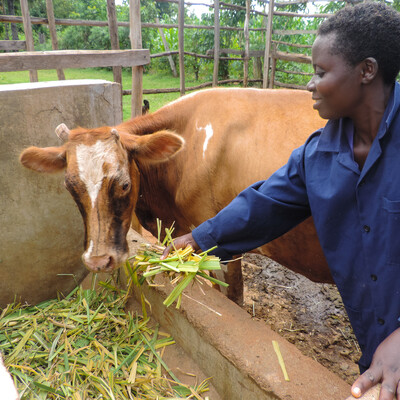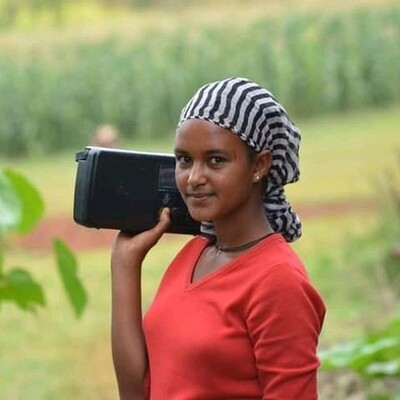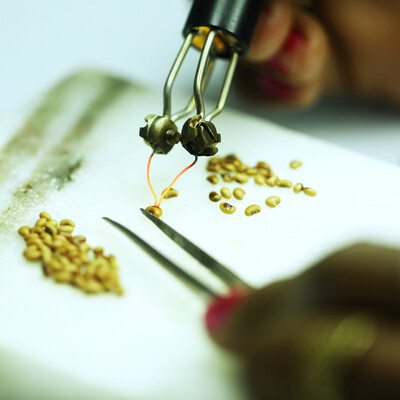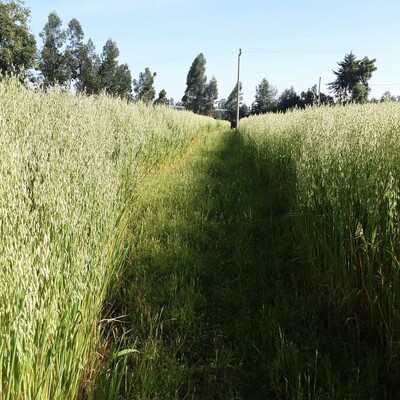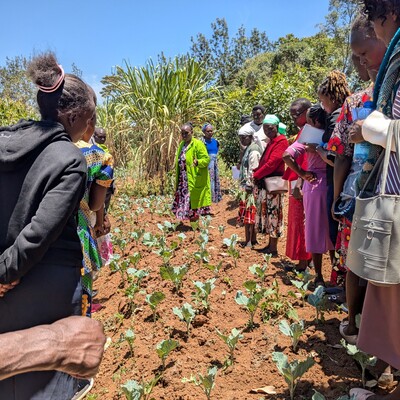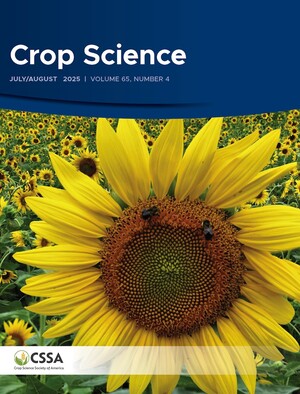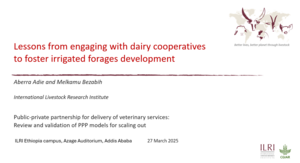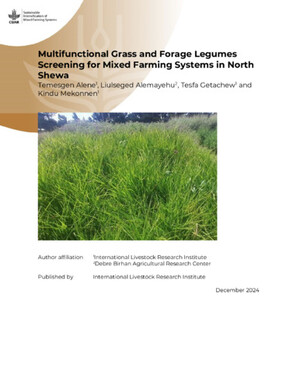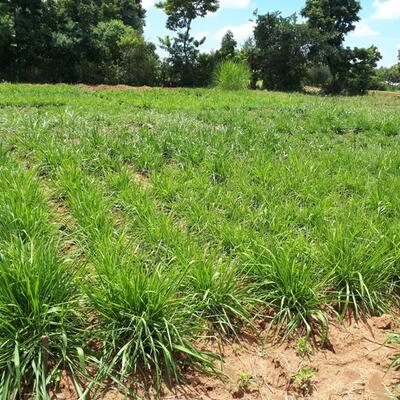
ILRI lbadan Forage Genetic Resources Unit launches to revolutionize livestock feed production in Nigeria
In celebration of its 50th anniversary, the International Livestock Research Institute (ILRI) marked a significant milestone for Nigeria's livestock sector with the launch of the ILRI Ibadan Forage Genetic Resources Unit. This new unit is dedicated to conserving and utilizing forage varieties that thrive in the Nigerian climate, ultimately transforming the country's approach to animal feed production.
The launch coincided with Nigeria's National Pasture Planting Day on 28 June, bringing together key stakeholders from government, private companies, academic institutions, and farming communities. This collaborative spirit is central to the success of the new unit.
Nigeria's livestock potential demands action
Nigeria's livestock sector is poised for significant growth and plays a vital role in national food security. It already contributes roughly 10% of the country's GDP and supports nearly 15 million households. However, a growing population creates a rising demand for animal protein. To ensure the sector's sustainability it will be critical to provide a steady supply of high-quality feed and forage.
ILRI's existing Feed and Forage Development (FFD) program works in Nigeria to tackle issues including insufficient and unpredictable animal feed supplies exacerbated by climate change. The new unit will house over 80 unique forage accessions from ILRI's renowned Forage Genebank in Ethiopia, which celebrated its 40th anniversary this year. This unique collection was made possible through the efforts of the program lead, Chris Jones and the FFD team.
Leaders applaud the initiative
The launch ceremony featured opening remarks virtually from ILRI director general Appolinaire Djikeng. He highlighted the importance of safeguarding biodiversity in the face of climate challenges.
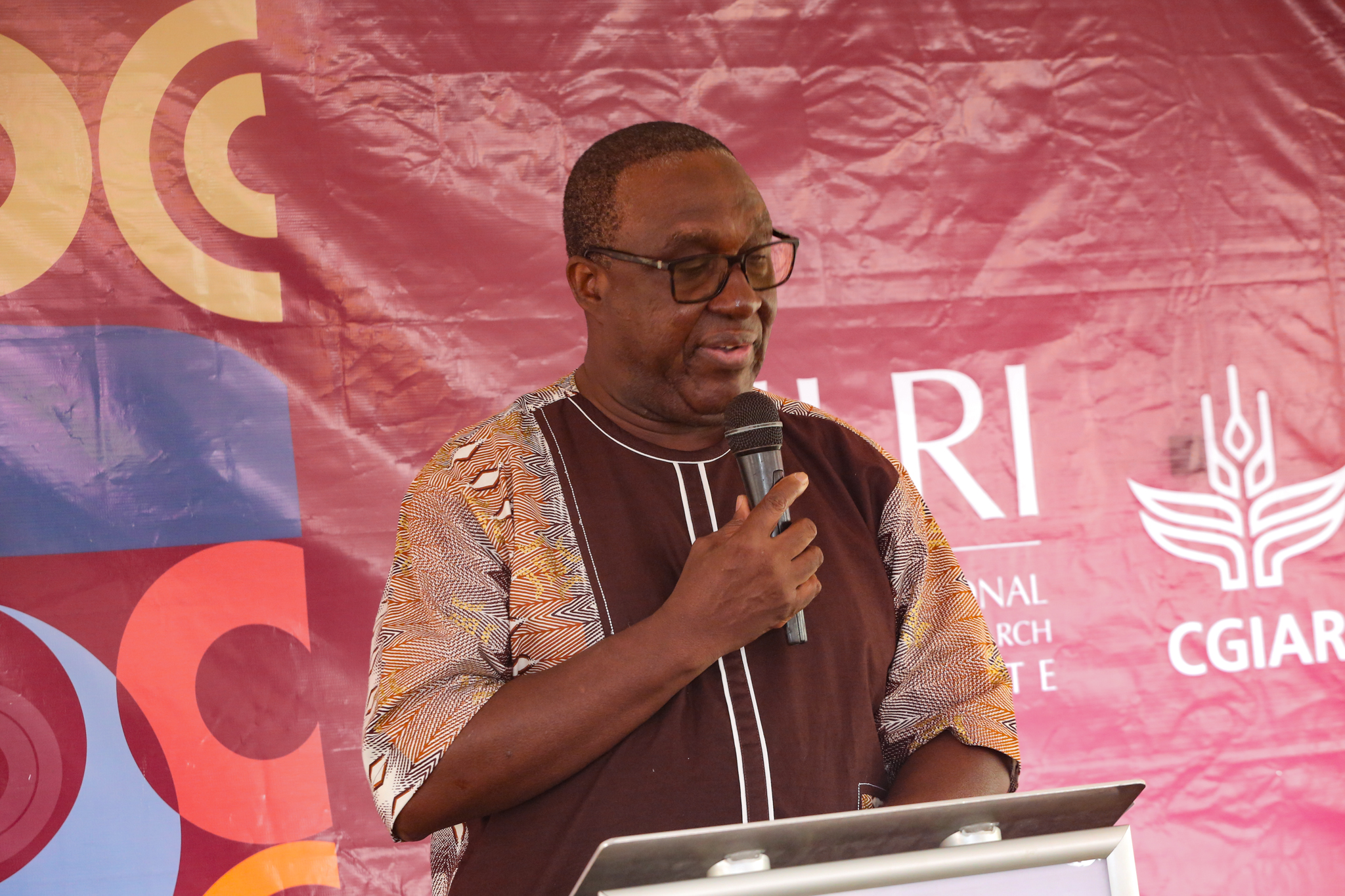
Simeon Ehui, director general of the International Institute of Tropical Agriculture (IITA) and CGIAR Director for Africa, welcomed the initiative's potential to boost productivity for smallholder farmers.
‘The use of cultivated forages such as grasses, legumes and dual-purpose food and feed crops provide a better solution and can double the forage yield of natural pastures, thereby reducing feed gap and increasing soil fertility,’ he said.
A representative of the governor of Niger, Mohammed Yahaya highlighted the state's potential for pasture production, including four hydro dams for irrigation, governor's support, and a ready USD 1 million alfalfa market. He invited ILRI to leverage this potential and help with pasture development in the state.
Oyo state governor’s representative at the event, Debo Akande emphasized the state’s existing collaboration with ILRI including establishing pasture land within its agribusiness hub.
‘ILRI's has contributed to the establishment of nearly 150 hectares of pasture land in the Fashola Agribusiness industrial hub, which has attracted private agricultural investment. ILRI has also been the major technical support for the state’s L-PRES project, which is expected to establish over 1,000 livestock cooperative groups across Oyo State’ Akande said.
The Federal Ministry of Agriculture pledged partnership with ILRI, aiming for a 60% increase in livestock yield and support for all stakeholders. They particularly encouraged youth investment in the sector.
Collaboration is key: from research to action
Stakeholders at the event stressed the importance of collaboration between researchers, government, academia and farmers. This collaborative approach, coupled with farmer education on pasture management practices, is crucial to translate research into practical applications.
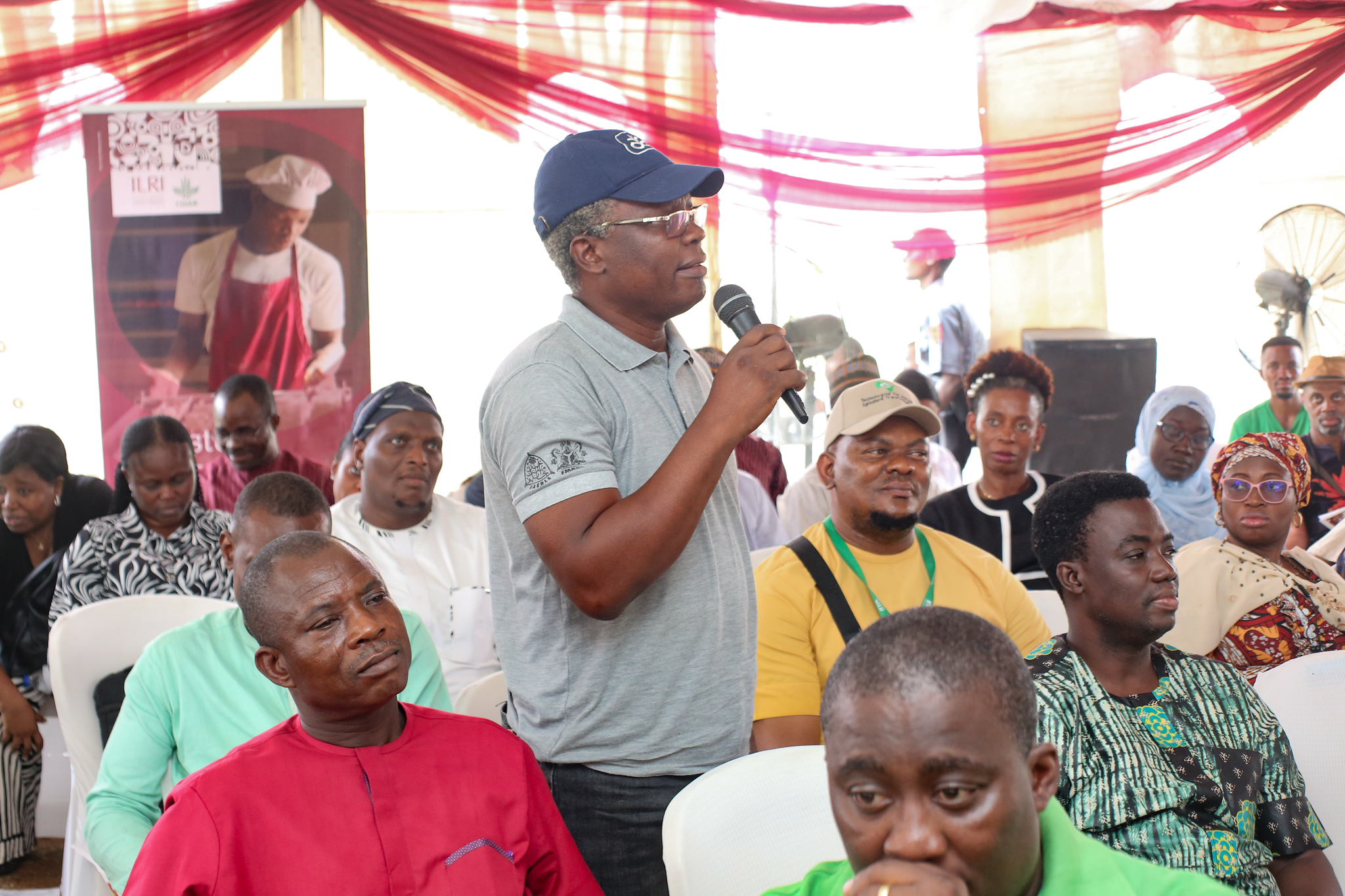
A lively discussion led by ILRI's Tunde Amole explored the importance of pasture for Nigerian livestock and how to promote its production.
The open discussion highlighted several areas for improvement in Nigerian pasture production. Key concerns included seed affordability and availability, and how to attract young people, with a call for initiatives that showcase the sector's profitability and professionalism.
Stakeholders emphasized the need for collaboration between researchers, academia and farmers to bridge the gap between research and practical application. This collaboration, along with farmer education on pasture management, is seen as crucial to translate research into commercially viable products.
Finally, a participant's interest in testing new cultivars on their farm exemplified the potential to put research into action.
The event did not stop there. All participants joined in with a hands-on seed-planting demonstration. This interactive experience was a fitting finale, leaving everyone excited to see the future of this new pasture unfold.
A turning point for Nigerian pastures
The launch of the ILRI Ibadan Forage Genetic Resources Unit marks a turning point for Nigerian pastures. By harnessing the rich genetic diversity of ILRI's genebank, this unit has the potential to develop superior forage varieties. This in turn will empower farmers, enhance animal nutrition, and ultimately boost milk and meat production. A more secure food supply and increased resilience against climate challenges will pave the way for a more sustainable future for Nigeria's livestock sector.
Learn more:






